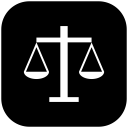
Fair Debt Collection Practices Act (FDCPA): A Brief Overview of Federal Law
A creditor may seek to collect an outstanding debt in several ways. For example, the creditor may attempt to collect the debt through direct communications with the debtor, by filing a lawsuit against the debtor, by seeking to take possession of or to sell property securing the debt, or by hiring a debt collection service. Faced with “abundant evidence of the use of abusive, deceptive, and unfair debt collection practices by many debt collectors,” 15 U.S.C. § 1692(a), in 1978, Congress enacted the Fair Debt Collection Practices Act (FDCPA), U.S.C. § 1692 et seq.
The FDCPA provides debtors with a means for challenging payoff demands, and for determining the validity and accuracy of asserted debts. 15 U.S.C. §1692g. Perhaps more importantly, however, the FDCPA establishes ethical guidelines for the collection of consumer debts. It is difficult to argue with the need for such guidelines: the Federal Trade Commission (FTC) provides Congress with an annual report covering FDCPA enforcement activities and summarizing consumer complaints of alleged violations of the FDCPA by debt collectors. The FTC reports that in 2005 there were more than 66,000 complaints. Congress targeted such behavior because it found that “[a]busive debt collection practices contribute to the number of personal bankruptcies, to marital instability, to the loss of jobs, and to invasions of individual privacy. ” 15 U.S.C. §1692(a).
Preliminarily, the FDCPA generally applies only to third party debt collectors; the statutory scheme was not intended to cover the conduct of the original creditor. However, some states, such as California, have enacted consumer protection statutes that provide broader coverage than the FDCPA, and they may include the conduct of the original creditor within their sweep. The FDCPA permits such state laws. See 15 U.S.C. § 1692n.
“The FDCPA broadly prohibits a debt collector from using ‘any false, deceptive, or misleading representation or means in connection with the collection of any debt.’ 15 U.S.C. § 1692e.” Dunlap v. Credit Protection Ass’n, L.P., 419 F.3d 1011, 1012 (9th Cir. 2005). The statute enumerates several examples of such practices, 15 U.S.C. § 1692e, as well as several examples of unfair practices, 15 U.S.C. § 1692f. The FDCPA also provides, for example, that debt collectors may not harass or annoy debtors, may not threaten debtors with arrest, and may not threaten legal action unless litigation actually is being contemplated. See 15 U.S.C. §1692d. Additionally, in their first communication with the consumer, debt collectors are required “to notify debtors about their ability to challenge the validity of a debt and to provide other basic information..” Foti v. NCO Financial Systems, Inc., 424 F.Supp.2d 643, 653 (S.D.N.Y. 2006) (citing 15 U.S.C. §1692g). This includes informing the debtor of his or her right to ask the collection agency to “validate” the debt.
With respect to its ethical guidelines, and in addition to the mandatory disclosures a debtor collector must make in its initial communication with the consumer, the FDCPA provides, for example, enumerates the conduct of debt collectors when communicating with third parties in an effort to locate the debtor, and prohibits third-party debt collectors from contacting a debtor directly if they know the debtor is represented by counsel, see 15 U.S.C. § 1692b. The FDCPA also provides that debt collectors may not contact debtors before 8:00 a.m. or after 9:00 p.m., but it does not prohibit debt collectors from contacting debtors on holidays or weekends unless they know or have reason to know that doing so would be “inconvenient” to the debtor. The FDCPA even gives debtors the right to demand that the third-party debt collector terminate all further communications, but the demand must be in writing. See 15 U.S.C. § 1692c.
Finally, in addition to administrative enforcement, see 15 U.S.C. § 1692l, the FDCPA provides for private rights of action against debt collectors, and permits debtors to recover actual damages, statutory damages, and attorneys’ fees and costs for violations of its terms. See 15 U.S.C. § 1692k.



